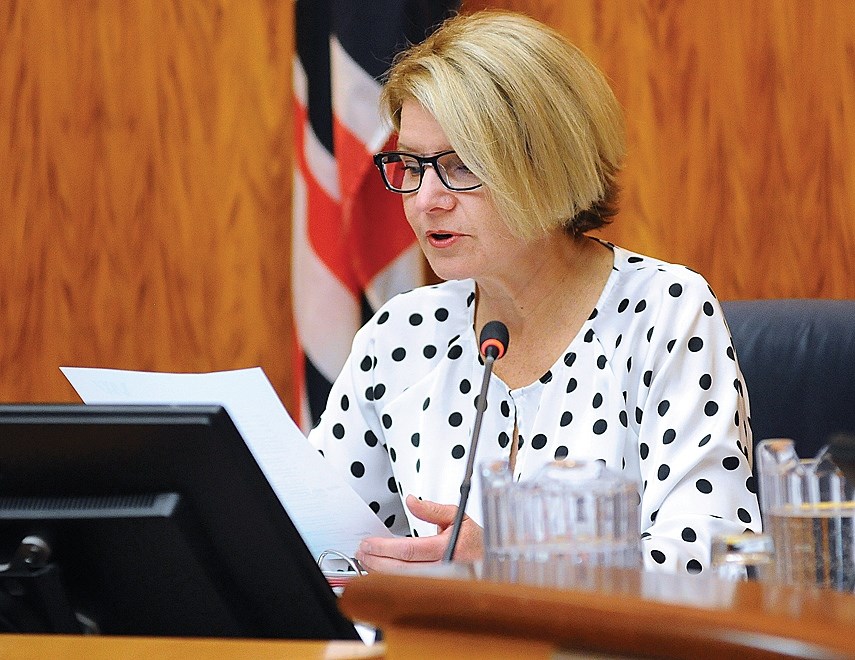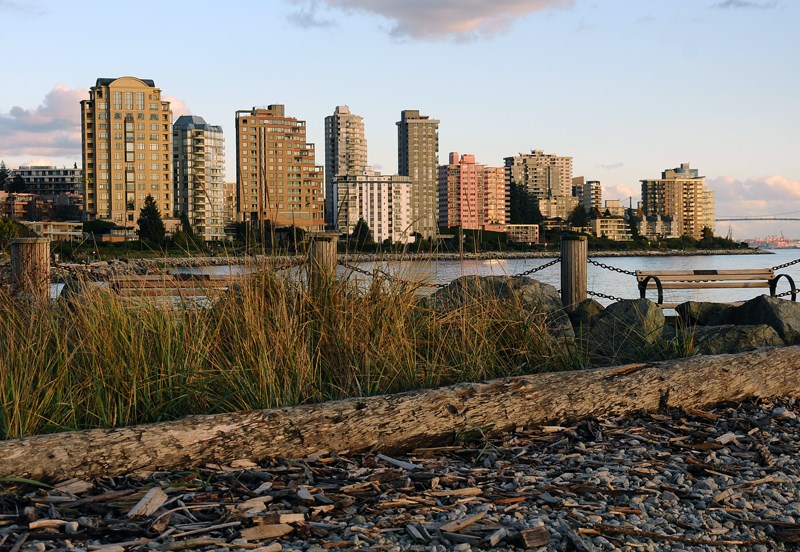This story has been amended since first posting to include West Vancouver Mayor Mary-Ann Booth's response to the survey results after they were released by the West Vancouver Community Stakeholders Group to the public.
A survey of West Vancouver residents commissioned by a group of community activists has shown that while there’s still strong opposition to a B-line bus and increased density in the municipality, there’s also strong support for a local vacancy tax.
Overall, the survey also showed residents think the mayor, council and staff of the municipality are doing a reasonable job.
The survey conducted by the polling company Angus Reid Global was commissioned by the West Vancouver Community Stakeholders Group, headed by business owner Nigel Malkin, who have been vocal about their opposition to the B-Line.
The random telephone survey polled 408 West Vancouver residents between Sept. 6 and 11, asking what issues people were most concerned about and for specific responses on certain topics.
The biggest issue for local residents is traffic congestion, according to the survey, followed by housing, infrastructure issues and concerns about development, according to the poll results. Issues like public transit, the environment and taxes were much farther down the list of concerns.
Malkin, whose group spent about $10,000 on the survey, said the reason his group decided to pay for it was “We wanted to have some actual empirical data.”
That way, when issues come before council, “We can go and say to our mayor and to council, the residents don’t want this,” he said.
Among the things residents don’t want: a B-Line bus, more storeys added to a condo project at Park Royal and greater density, according to the survey.
Of those polled, 76 per cent were opposed to bus-only lanes for a B-Line bus through Ambleside and Dundarave. (The re-branded RapidBus running from Phibbs Exchange in North Vancouver to Park Royal in West Vancouver is set to launch in 2020.). Sixty-seven per cent were also opposed to “building more high-density apartment buildings and condos” in West Vancouver.
Residents were also against the idea of adding five more storeys to condo towers already under construction at Park Royal, with 72 per cent opposed.
“There’ll be marching in the street if that makes it much further than the public hearing,” said Malkin.
Malkin said he’s not surprised that residents don’t want more density in their neighbourhoods.
“People did not go and buy their multimillion-dollar home in Ambleside or Dundarave to go and have a 36-unit townhouse dumped on two single-family lots,” he said. “Why did people move to West Vancouver? It’s a charming little place to live.”
On the flip side, 65 per cent of residents supported the idea of West Vancouver imposing a vacancy tax on empty homes like the one in the City of Vancouver.

Mayor Mary-Ann Booth got an approval rating of 41 per cent of respondents, while 30 per cent disapproved of her leadership and 29 per cent were unsure. Similarly, 39 per cent of those surveyed felt council was doing a good job, while 33 per cent gave them a poor review and 28 per cent were unsure.
And while 57 per cent of residents polled favoured having the ability to recall a local mayor, only 17 per cent said they’d like to use that to turf Booth out of office.
Malkin said he was surprised by the relatively high ratings garnered by Booth and council.
“Maybe Mary Ann (Booth) is doing a better job than I think,” he said. “I don’t think they’re doing a very good job at all. The numbers are the numbers.”
Pollster Angus Reid said it’s unusual for a local citizens group to commission a survey.
Reid, who lives in West Vancouver, said he was also curious about what local residents’ thoughts are about their municipality.
The results are a “fair representation of views in West Vancouver,” said Reid – and that includes some divided opinions.
“Obviously that B-Line is dead from the standpoint of citizens in West Van,” he said, while “there’s pretty strong support” for the vacancy tax.
Booth said Thursday there weren't any big surprises in the poll results.
Booth said the way the questions in the poll were worded did tend to "grossly oversimplify" the issues.
"We are always out in the community trying to not only get people's feedback but to ensure that is based on comprehensive information," she said. Most West Van residents understand "we're making complex decisions on complex issues," she said. "I'm always interested in what the community has to say."
Booth said she was also pleased to see there is general support among residents for the work council is doing.
Most of the survey respondents were older people and most had lived in West Vancouver over 20 years. The survey is considered accurate within 4.8 percentage points 19 times out of 20.



